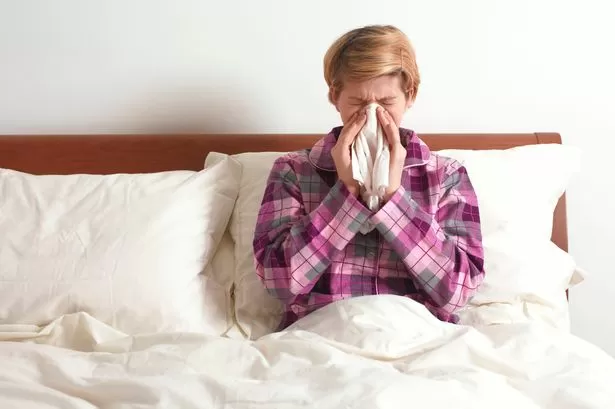With the arrival of spring, many people look forward to warmer weather and blooming flowers. However, for thousands of people, the season also means the onset of hay fever, also known as allergic rhinitis. This common allergy can cause countless sleepless nights for those who suffer from it.
Hay fever is a common allergic condition that affects up to 30% of the world’s population. It is caused by an allergic reaction to pollen, which is released by plants during the spring and summer months. When a person with hay fever comes into contact with pollen, their body’s immune system overreacts, releasing histamines which cause symptoms such as sneezing, runny nose, and itchy eyes.
For those who have hay fever, the symptoms can be debilitating. The constant sneezing, congestion, and itchy eyes can make it difficult to concentrate and perform daily tasks. However, the most significant impact is felt at night when trying to sleep.
The nighttime struggle of hay fever sufferers is one that is often overlooked. As pollen counts tend to be higher in the evening, symptoms are at their worst when trying to sleep. This can lead to a vicious cycle of poor sleep, which, in turn, exacerbates the other symptoms of hay fever.
Sleep is crucial for our overall health and well-being. It allows our bodies to rest and rejuvenate, repair damaged tissues, and strengthen our immune system. However, those with hay fever often find it challenging to get a good night’s sleep, which can lead to a range of health issues.
One of the biggest challenges for hay fever sufferers is falling asleep. The constant sneezing, coughing, and congestion can make it difficult to relax and drift off to sleep. This can result in frustration, anxiety, and sleep deprivation, leaving them feeling exhausted and irritable the next day.
Even if they do manage to fall asleep, hay fever sufferers are often woken up throughout the night by their symptoms. The congestion and itchy eyes can make it hard to breathe and cause discomfort, leading to multiple awakenings. This disrupts the sleep cycle and prevents the body from entering the deep sleep needed for rest and restoration.
The lack of quality sleep takes a toll on both physical and mental health. Studies have shown that sleep deprivation can weaken the immune system, making it harder for the body to fight off allergens. This means that hay fever sufferers are more susceptible to allergies and infections, which can further worsen their symptoms.
Moreover, inadequate sleep can also affect cognitive function and mood. Sleep deprivation can lead to difficulty concentrating, memory problems, and irritability. This can have a significant impact on work, school, and personal relationships.
It’s not just the hay fever sufferers who are affected by their lack of sleep. Their partners and family members may also suffer from disrupted sleep due to the constant sneezing, coughing, and nose blowing of their loved one. This can cause strain and tension in the household, leading to a domino effect of sleep deprivation and irritability for everyone.
The good news is that there are ways to alleviate the nighttime struggles of hay fever sufferers. Here are some tips for a better night’s sleep:
1. Keep the windows closed: As tempting as it may be to let in some fresh air, keeping windows and doors closed will help minimize the pollen entering your home.
2. Take a shower before bed: Pollen clings to clothes and hair, so taking a shower before bed can help wash away any allergens and provide some relief for a better sleep.
3. Use an air purifier: Investing in an air purifier with a HEPA filter can help remove pollen and other allergens from the air, providing a cleaner environment for better sleep.
4. Use a nasal spray or saline rinse: These can help clear the nasal passages and reduce congestion, making it easier to breathe and sleep.
5. Consult a doctor: For those with severe hay fever, it may be necessary to consult a doctor for prescription medication or allergy shots to help manage symptoms.
In conclusion, hay fever is a common allergy that affects thousands of people worldwide. While it may seem like a minor inconvenience, it can have a significant impact on one’s quality of life, particularly at night. Sleep is essential for our health and well-being, and hay fever sufferers should not have to sacrifice it because of their allergies. By taking some simple precautions and seeking medical advice, a good night’s sleep can










